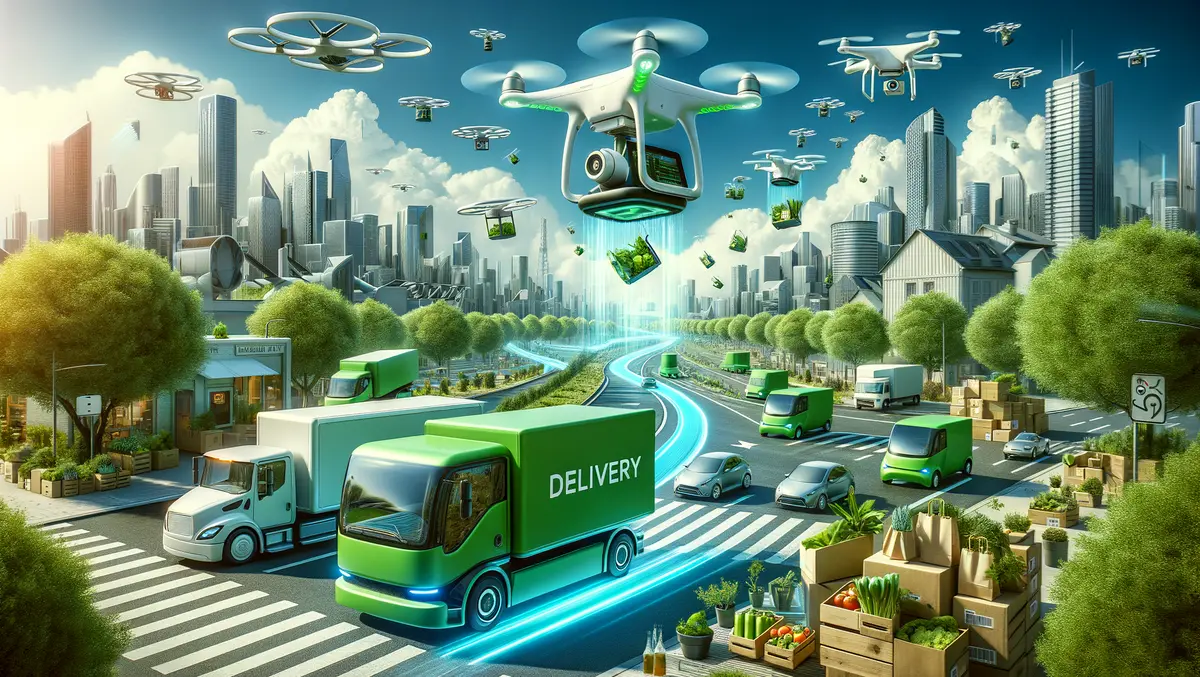According to industry insiders, the delivery service landscape in 2024 will be characterised by transformative trends marrying technology advancements with evolving consumer expectations. "As technology continues to advance and consumer expectations evolve, the industry should be primed for change," comments Roy Moody, CEO of dispatch software provider vWork.
Changing trends include the integration of artificial intelligence (AI) and delivery logistics and a major shift towards more sustainable, environmentally friendly practices in response to consumer demands. Moody anticipates a highly competitive marketplace with a pressing need to optimise customer experience. This is a particular concern in fresh food delivery, where customer retention has become one of the industry's biggest challenges.
"With customers now so focused on their delivery experiences, delivery has quickly become an important differentiator between brands. Today, focusing on the last mile as part of your core product and brand is likely to build a loyal customer base much faster than any ad campaign," Moody explains.
One crucial component of this shifting landscape is the integration of AI into systems for effective management and optimisation of delivery telematics (the tracking of fleet vehicles). This facilitates handling extensive data, improving routing, reducing fuel consumption, lowering insurance rates, and engendering better driver behaviour.
Moody elaborates: "Having the right dispatch tech with sophisticated telematics allows businesses to streamline processes and gain real-time insights. Businesses can help drivers boost productivity and also crucially, and oft-forgotten, improve on-road behaviour and better support of driver health and safety."
Route optimisation is another trend that continues to develop, with urbanisation expansion in Australia's cities and regional centres putting pressure on delivering while keeping operating expenses down. Optimised route mapping can enhance on-time delivery performance and lead to significant savings for businesses.
In response, "companies are exploring strategies such as micro-fulfilment centres, shared delivery hubs, and urban warehouses to reduce delivery times and costs. We expect to see more innovative solutions designed to address the challenges of delivering in densely populated areas," says Moody.
In terms of sustainability, companies are transitioning towards electric vehicle (EV) fleets to satisfy eco-conscious consumers. Last-mile logistics are being reimagined, with businesses following in the footsteps of major brands like Coles, Woolworths, and Bunnings, who have pledged public commitments to zero emissions in last-mile deliveries. This move towards EVs also has practical benefits for fleet management, offering "compelling cost-saving advantages and improved operational efficiency", extending beyond the environmental benefits, Moody adds.
The final trend to watch in 2024 is the growing accuracy of GPS, with the Australian government investing AUD $260 million in the Positioning Australia program. This initiative aims to deliver drastic improvements in positioning infrastructure and location accuracy, set to achieve 30mm accuracy anywhere with internet coverage.
"Going far beyond the ability to locate postal addresses on a map, pinpoint location accuracy will allow businesses to take their customer experiences up a level while boosting productivity through improved resource management and offering delivery precision in ways that, so far, haven't been possible," notes Moody.



